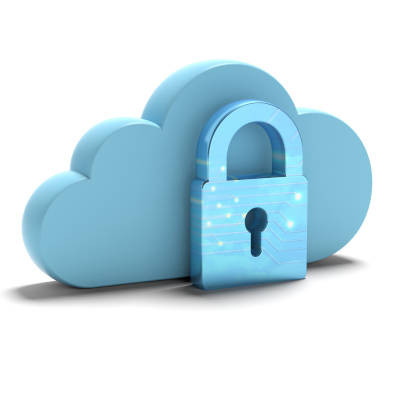The first thing a ransomware attack does is lock down all of your data. This can also include your backup. Without a backup, you’re at their mercy. This is why the cloud (when utilized correctly) can be a critical part of your business continuity. Here are three reasons why backing up your data to the cloud keeps your data out of the hands of cybercriminals.
As ransomware attacks continue to dominate the news, small to medium-sized businesses are struggling to find the means to protect themselves. By investing in cloud computing and using it to secure your backup, you remove from the hands of a cybercriminal the weapon they will most likely turn against you: your data.
Three Ways The Cloud Helps Cybersecurity
- 1. Cloud computing prevents vulnerabilities due to out of date software.
Cybercriminals are always searching for vulnerabilities to exploit; these vulnerabilities often show themselves as out-of-date, end-of-life, or unpatched software (and hardware). When your workstations use out-of-date software, you expose your business to a wide range of threats.
The advantage of using cloud-based applications is that your software is never out-of-date or EOL. Updates and patches are automatically pushed to your team, ensuring vulnerabilities are addressed before a bad actor has a chance to use them to attack your system. Moreover, it is simple to ensure that all your team members use the same version of the application.
Not only does this reduce the risk of incompatible software being used between team members, but it also eliminates any members who may still be operating at-risk versions of the software.
For example, if you’re an organization that takes HIPAA seriously, having a team member who is still using Windows 7 places your organization out of HIPAA compliance and at risk of censure.
Finally, migrating your applications to the cloud, most notably your productivity software (Microsoft Office 365 and G Suite by Google), brings a wealth of benefits to your business, most notably real-time collaboration and communication.
Cloud computing can also minimize the risk that your team may use shadow IT to solve problems your obsolete software presents in productivity areas, primarily because your approved and up-to-date toolset is readily available to them.
When it comes to top cybersecurity threats right now, shadow IT is something you should pay attention to. Shadow IT is a cybersecurity risk because when your team uses it, they do so without getting approval from your IT department, which may expose your system to cyberattack.
- 2. The cloud facilitates the 3-2-1 method of data security
When developing a backup and recovery plan, best practices must include the 3-2-1 method. The 3-2-1 method requires you to keep (at least) three copies of your data, including the original, in two different types of storage media, one of which is held offsite. The cloud is uniquely suited to be your offsite storage media; because of this, the cloud should be considered a critical component of your backup and data recovery strategy.
- 3. Backing up to the cloud lets you version your data
Ransomware attacks are often successful because businesses don’t have a viable backup, or a backup that hasn’t also been compromised and can be recovered. Unfortunately, many businesses only make partial backups or keep their backups onsite on their workstations.
Why is versioning important? Keep in mind; most ransomware attacks aren’t triggered as soon as a bad actor gains access to your systems. Instead, the malware is given time to infiltrate, replicating itself as much as possible in hopes of reducing the chances your IT team can remove it. Most importantly, the goal is to give the malware time to infect your backups, either deleting or encrypting them, making it impossible for you to use them to recover your data.
This is why the versioning offered by your cloud backup is essential. In case of a ransomware attack, file versioning will allow you to recover a ‘clean’ (uninfected) version of your data from an earlier point in time before the ransomware infiltrated your system. This clean version of your data is your primary protection against a ransomware attack. Cybercriminals seek to prevent you from using a backup to recover your data. These bad actors understand that if they can deny you your backup, you have two choices: either pay them or lose your data.
In the case of the cloud backup, your data and its past versions can be preserved offsite, away from the active infection. This allows you to restore your data from the last “clean” version you had… a much better alternative to starting from scratch.
Make Cloud Computing a Part of Your Cybersecurity Solution
Cloud computing is one of the most versatile technologies today. That’s why Dresner Group offers a wide range of cloud computing services for your business—ranging from hosted desktops, servers, and cloud backup to Microsoft cloud solutions including Microsoft Azure and Hosted Microsoft Exchange.
As Maryland’s premier technology experts, our goal is to leverage technology to provide enterprise-level IT practices and solutions to the small business sector, at small business prices. Cloud computing allows SMBs to level the playing field, being more productive and competitive.
Call (410) 531-6727 today to learn more about how cloud computing can benefit your business.



